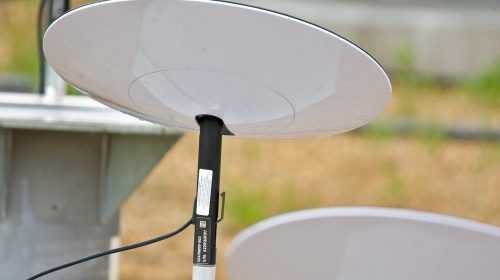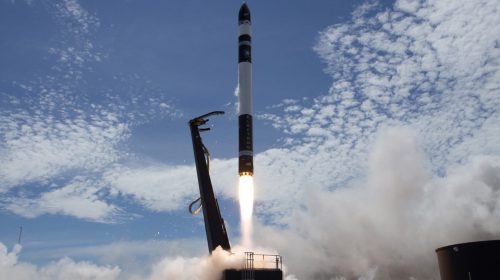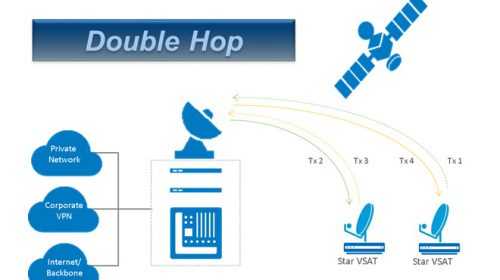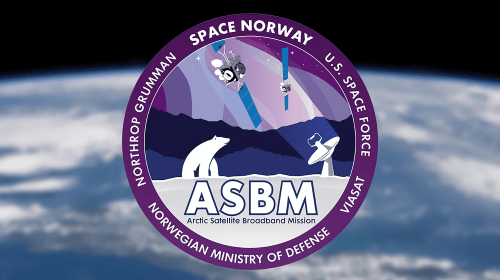Strategic Infrastructure Development
Sep 21, 2025
On Thursday, August 28, 2025, Rocket Lab achieved a big milestone by opening Launch Complex 3 in Virginia at the Mid-Atlantic Regional Spaceport. The facility is the fourth site where the company will launch its products and will be the main test, launch and landing site of its ambitious program, Neutron rocket. The construction of the complex took less than two years, and the project was launched at the end of 2023, which is a good indication of excellent project management and efficiency in terms of engineering efficiency when it comes to the level of technical complexity and regulatory requirements.
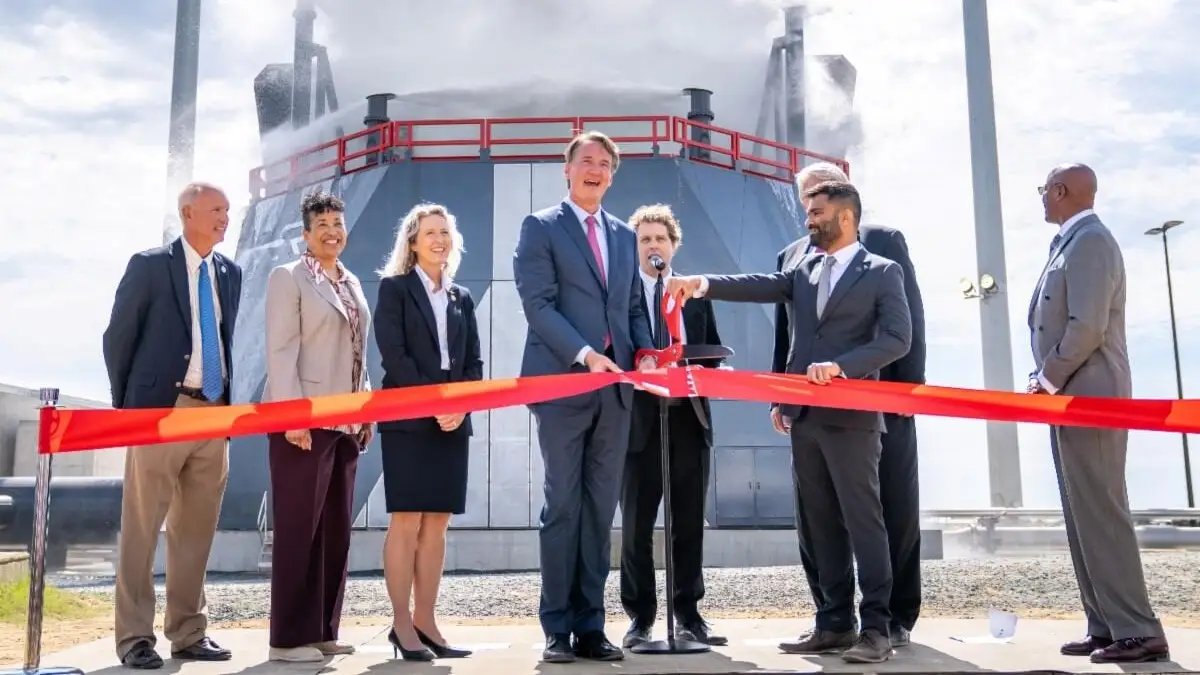 Gov. Youngkin opens Rocket Lab launch pad in Virginia. Credit: Rocket Lab
Gov. Youngkin opens Rocket Lab launch pad in Virginia. Credit: Rocket Lab
This development represents a critical shift for Rocket Lab as the company transforms from a small satellite launcher into a full-fledged space solutions provider capable of managing medium-lift missions. The Virginia site is the strategically important addition to the global network of the company that now has four locations in two countries, which provides the company with unparalleled flexibility in mission planning and delivery and also domestic launch capabilities of sensitive government and commercial payloads of the U.S., effectively enhancing its operational reach.
Advanced Technical Infrastructure and Engineering Systems
The technical design of Launch Complex 3 demonstrates developed infrastructure designed to meet the needs of modern rockets and the specific requirements of Neutron. The facility has a 30-foot tall launch mount with advanced stabilization and umbilical systems that are required in the complicated pre-launch activities required by reusable rocket technology. Liquid Oxygen (LOX) and Liquefied Natural Gas (LNG), which are the main propellants of Neutron, are stored in two huge propellant farms with a total capacity of 180,000 gallons, and three special tanks are used to store liquid nitrogen used in tank conditioning, pressurizing, and safety purging activities.
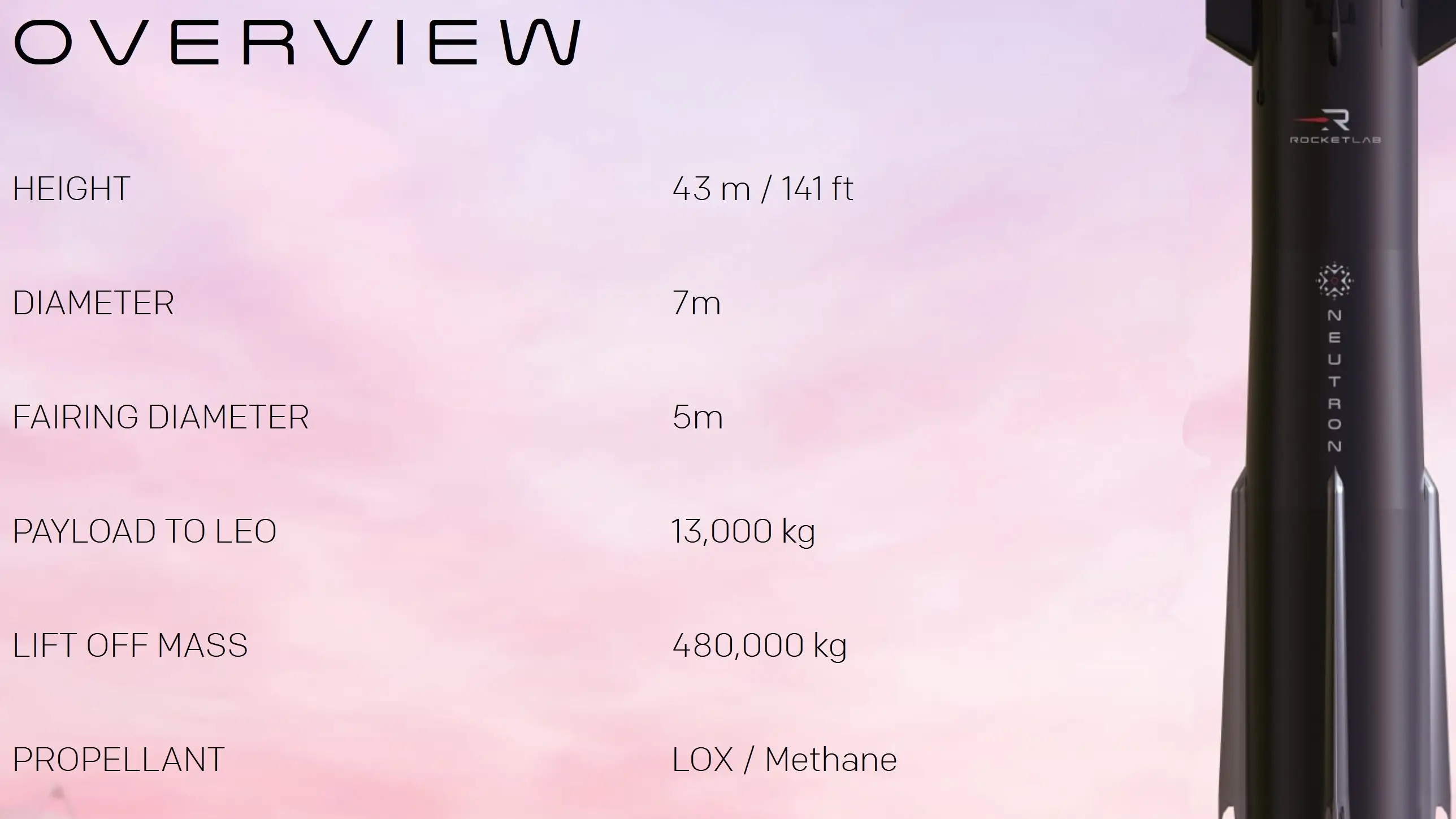 Rocket Lab’s Neutron Overview. Credit: Rocket Lab
Rocket Lab’s Neutron Overview. Credit: Rocket Lab
There is a specialized water supply tower which offers substantial amounts of water required in sound suppression during launches and emergency fire suppression systems. The choice of LOX and LNG propellants is completely in line with the current trends in the rocket propulsion industry, and it effectively presents performance, environmental, and flexibility advantages over the traditional propellant mix. The whole facility has redundancy and backup capacity and complies with the aerospace industry’s stringent safety standards.
National Security Integration and Strategic Defense
Rocket Lab’s inclusion in the National Security Space Launch earlier this year is a significant move forward in the company’s history in terms of its position in the market and revenue opportunities. Space Systems Command’s decision to include both Rocket Lab and Neutron in this highly prestigious program clearly attests to the technical abilities and reliability requirements of the company and puts it in competition directly with some proven players to provide high-value national security missions, effectively strengthening its credibility.
 Rocket Lab’s Launch Complex 3 promo. Credit: Rocket Lab
Rocket Lab’s Launch Complex 3 promo. Credit: Rocket Lab
CEO Peter Beck personally stressed that Rocket Lab was one of the few providers of launch services that the Department of Defense chose to use in the highest-priority missions, and these extremely critical missions were the first to be launched out of Virginia. The NSSL certification process includes tough technical checks, financial checks, and security checks, so a program consideration is a significant competitive edge. The company has also achieved a lot in regulatory approvals, obtaining its FCC license on Neutron and filing its launch license application to the FAA, which clearly show systematic preparation to be operationally ready.
Future Market Expansion and Commercial Opportunities
Neutron is the ambitious project of Rocket Lab to enter the market of medium-lift launch vehicles, which would be positioned between the small satellite launchers and heavy-lift vehicles. The specifications of the rocket include a payload of up to 13,000 kilograms to different locations such as commercial constellation launches, national security missions, interplanetary exploration, and future human spaceflight missions. This ability puts Neutron in a position to gain large market share in the expanding satellite constellation market where operators are in need of effective use of several satellites to varying orbital planes. The Neutron reusable design philosophy is an industry response to the environmentally friendly and cost-efficient aspects of space operations and reusability features are designed to achieve a substantial reduction in the cost of launches and still meet the high reliability standards that are a requirement of both commercial and government clients. Beck said that Neutron would set new performance and reliability standards in the 13 ton class vehicle category and compete with the proven medium lift rockets but with more operational capability.
The attendance of the opening ceremony of the aerospace industry by Virginia Governor Glenn Youngkin highlights Virginia’s interest in developing its aerospace industry, which coincided with the launching of the Aerospace Academy of the Eastern Shore to aid the development of regional workforce. It is an all-inclusive strategy that integrates infrastructure development with talent development that makes Virginia the most vibrant space industry complex in America. The opening of Complex 3 coincides with the ambitious schedule by Rocket Lab to launch Neutron in its first launch by the end of 2025, but Beck admitted that this was a difficult plan. The capabilities of the Virginia facility will enable future interplanetary mission ambitions, which will offer infrastructure that is required to support complex mission profiles and long preparation timelines, which will benefit both Rocket Lab and the general aerospace ecosystem in terms of integrated industry development.
The opening of Launch Complex 3 represents more than just another launch facility; it symbolizes America’s evolving space landscape where private companies are becoming integral partners in national defense and scientific exploration. This development positions Virginia as a critical hub for the next generation of space operations, combining cutting-edge technology with strategic government partnerships. The facility’s design for reusable rocket operations reflects the industry’s shift toward sustainable space commerce, where cost-effectiveness and environmental responsibility drive innovation. As Rocket Lab prepares for Neutron’s maiden flight, the Virginia complex stands ready to support missions ranging from satellite deployments to eventual Mars exploration, demonstrating how regional infrastructure investments can catalyze national space capabilities and economic growth. This strategic investment will inspire further private sector involvement, accelerating technological innovation and expanding America’s global leadership in commercial space.

